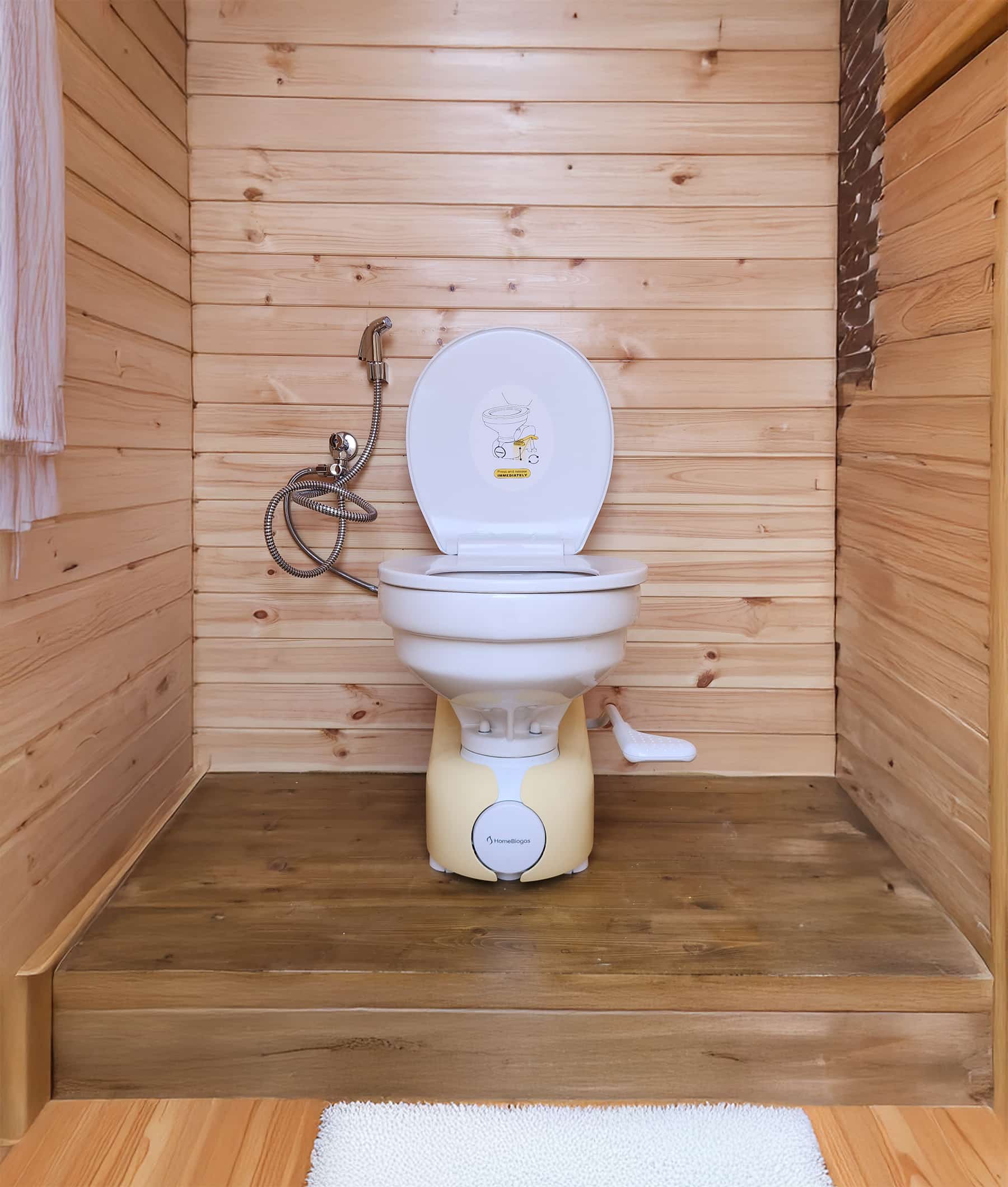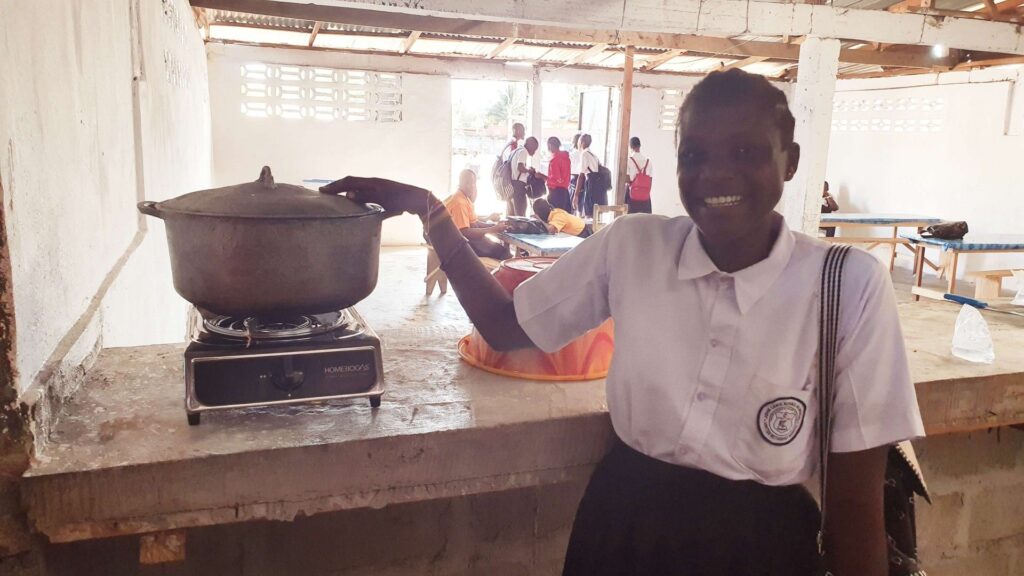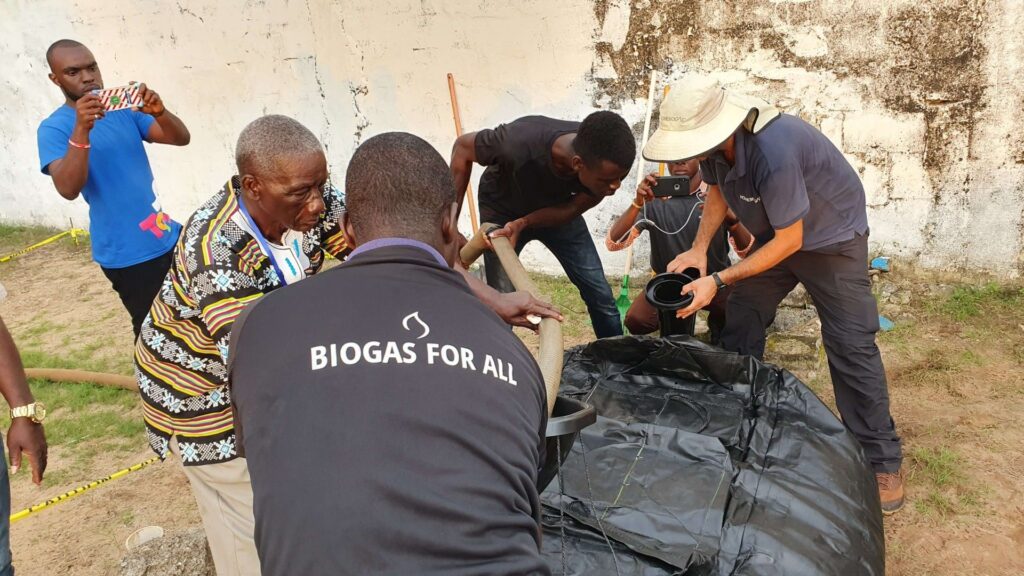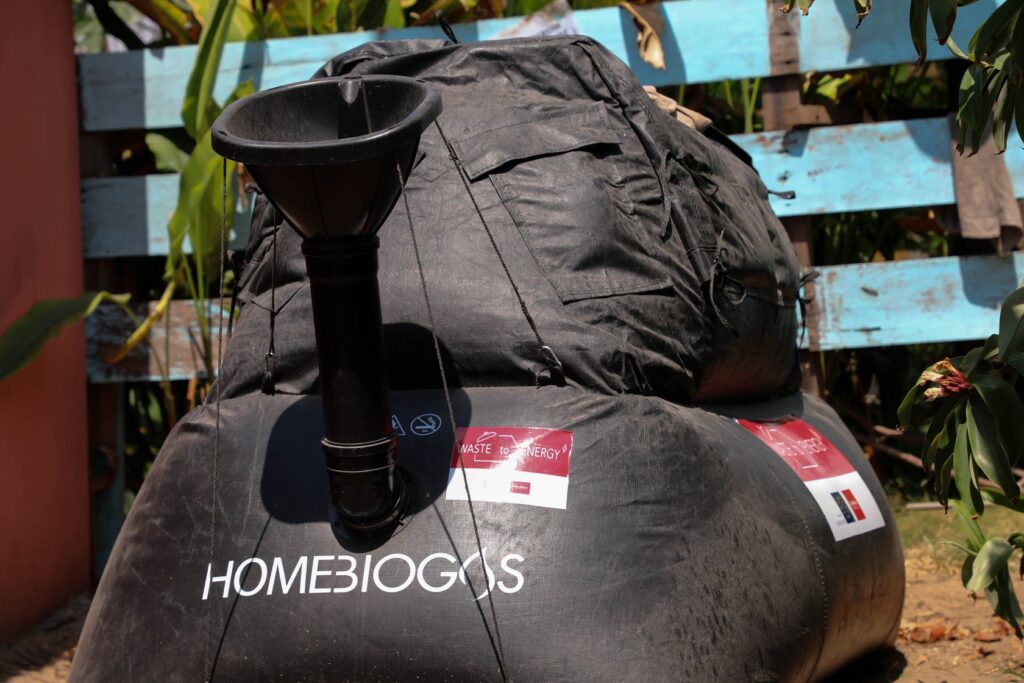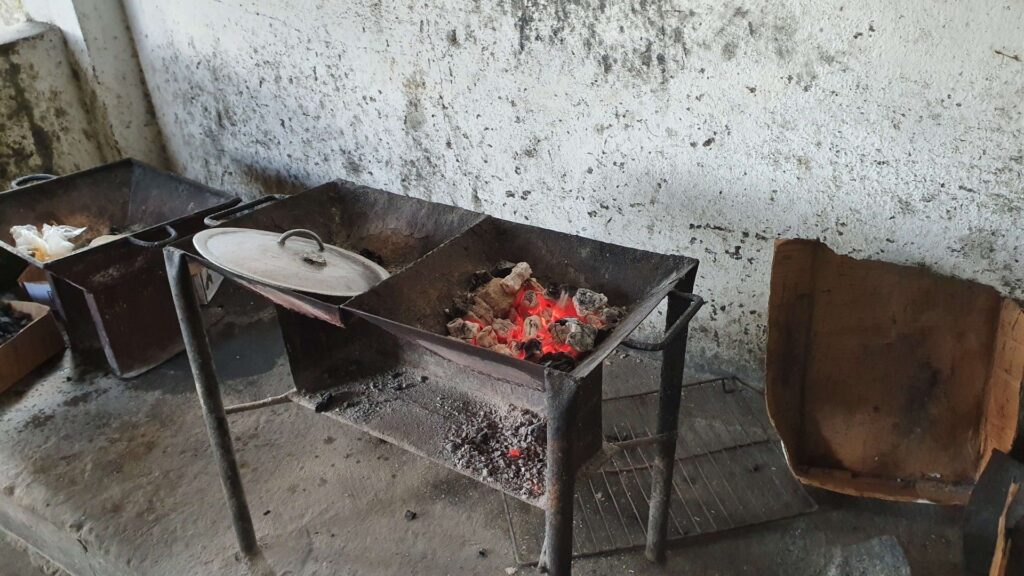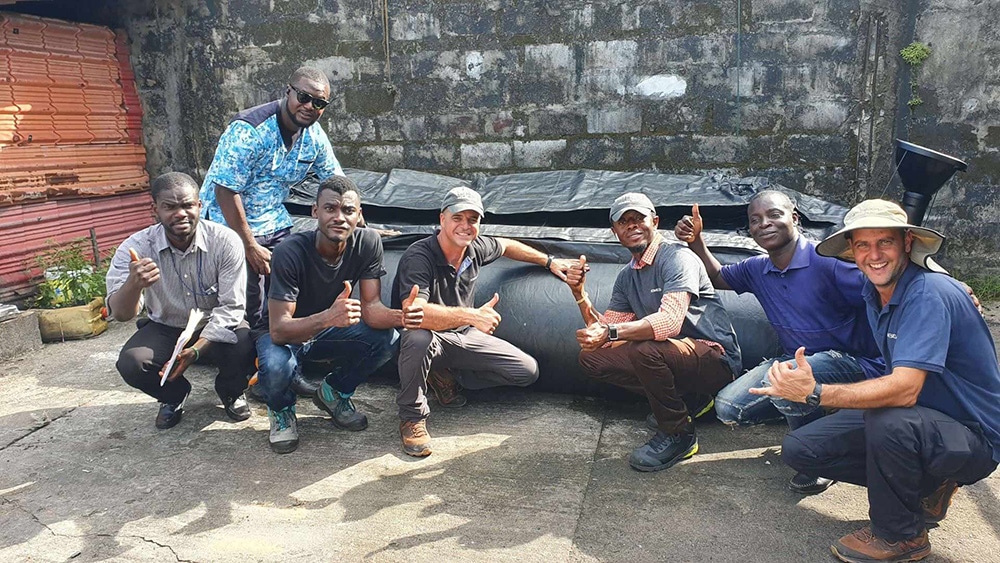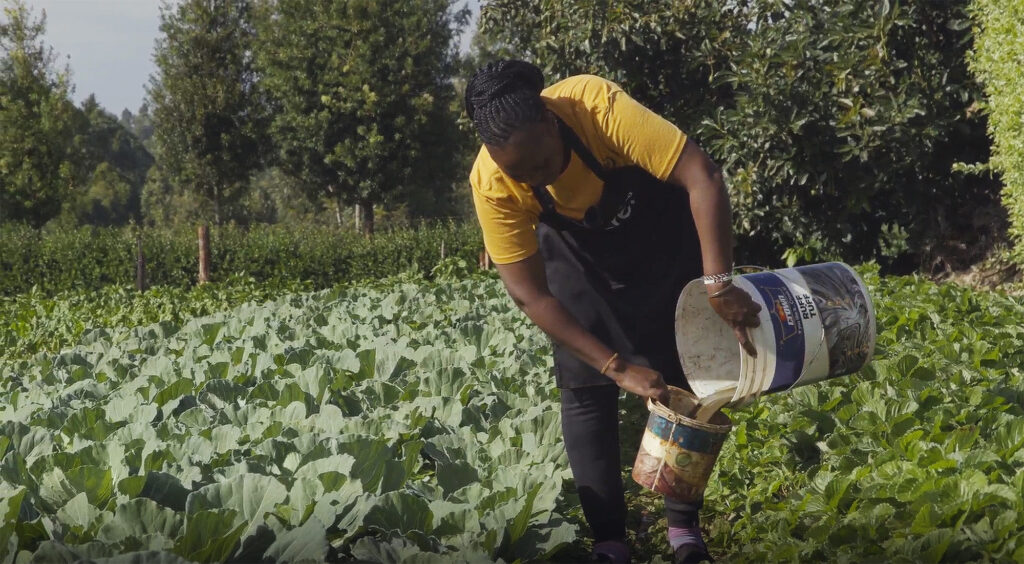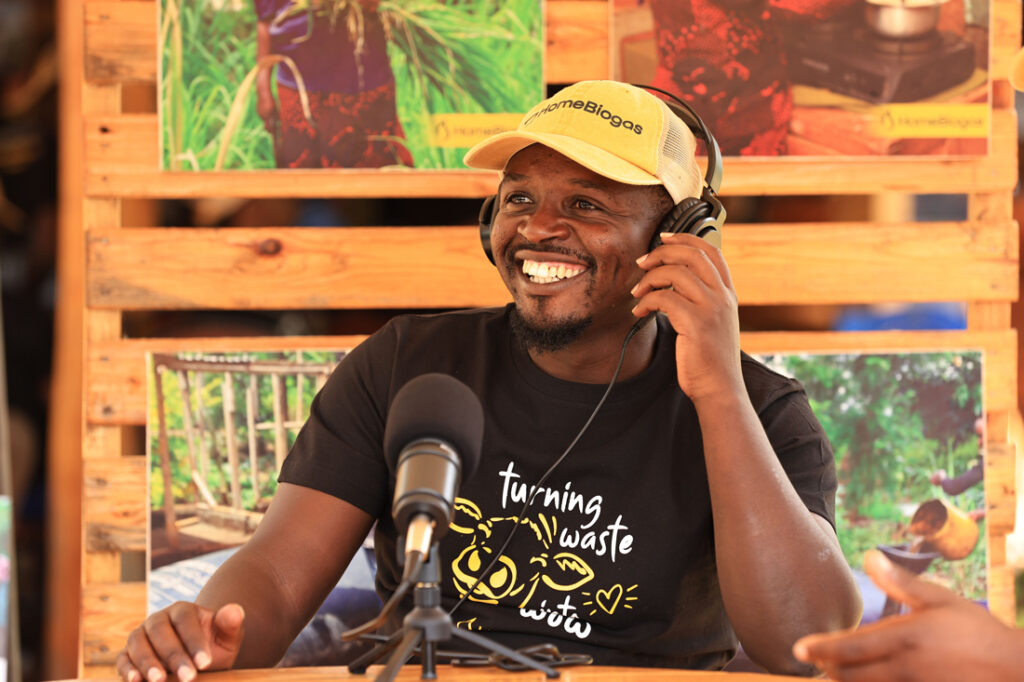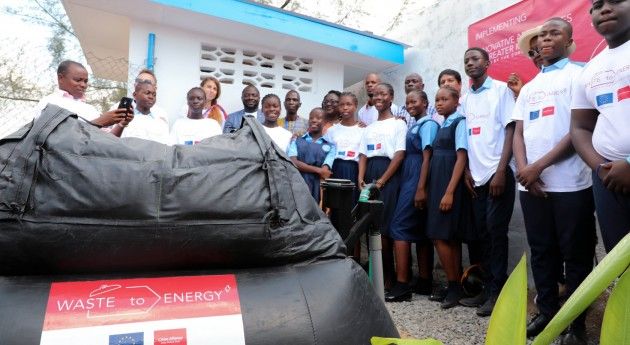
After a year of research and testing of biodigesters on the market, Cities Alliance, an organization formed jointly by the World Bank and the United Nations approached HomeBiogas to become a partner in the project ‘Implementing Waste to Energy Innovative Approaches in Greater Monrovia, Liberia,’ which is financed by the European Union. The goals of the project are to 1) reduce greenhouse gases and landfill emissions, and 2) provide livelihood opportunities for people in vulnerable communities to be employed in primary waste collection.
In November 2019 HomeBiogas’ CEO, Oshik Efrati and Production Manager, Ofer Sadan travelled to Liberia to install10 HomeBiogas units in schools, and provide training to the school’s staff and students on proper operation.
The students, who are used to charcoal being used as cooking fuel in their homes and at school were excited to learn about the HomeBiogas system and how to operate it. Oshik recalls, “Every school we went to had a kitchen where meals are cooked. That means there is always waste, never a shortage. But the students couldn’t believe that the waste could be converted into cooking gas. They were really in shock. They had never heard about biogas.”
Two systems were installed at the Isaac David School in Paynsville. One system is fed with organic waste produced at the school, and the other system is powered by the Bio-Toilet waste. Although they have different waste sources, both systems create biogas which is used in the kitchen to cook meals for the pupils every day. The second byproduct of the systems, fertilizer, is used in the school’s garden, where the students produce vegetables for the school’s use and to sell at the local market.
Stanley Zahn manager of Paynesville City Corporation. “It starts from our school: the students in science course can only read or see in the classroom; but now they can see the technology and innovation at work in our kitchen. This helps more and more young kids to develop their interest.”
About the Project
The Waste-to-Energy Project, an EU investment worth 1M USD, seeks to provide livelihood opportunities for vulnerable communities through innovation. This is part of the Cities Alliance broader approach to build resilience and raise awareness on climate change especially among young generations.
The project also seeks to contribute to environmental protection and build local resilience. The launch of the project will promote the use of HomeBiogas systems that are intended to assist in the reduction of pollution, use of charcoal for cooking and contribute to a reduction in greenhouse gas emissions. It will also encourage proper forms of waste management and prevent soil and water pollution.

